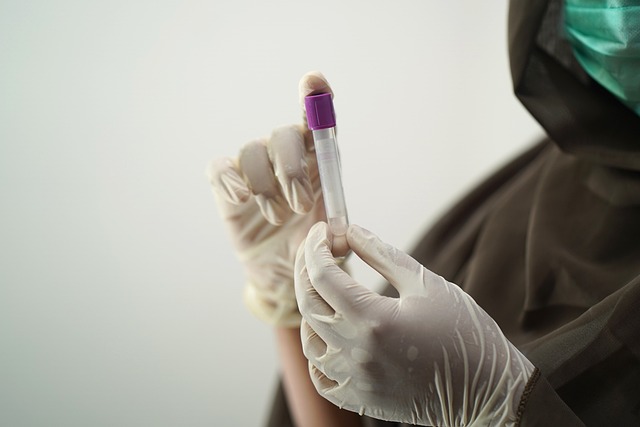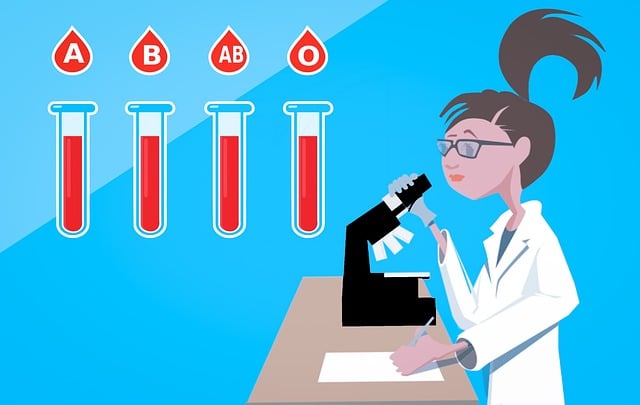The UK Kidney Blood Test is a home-based monitoring system that allows individuals to self-monitor their kidney function by measuring serum creatinine and eGFR levels. It's designed for ease of use with a simple finger-prick blood sample and provides immediate results on kidney health, facilitating early detection and management of chronic kidney disease (CKD). The test kit is complete with all necessary materials, including a pre-coded test strip that detects key markers. Users can interpret their results with guidance from a digital app, which helps understand the implications of their readings. Regular self-monitoring supports early intervention and can lead to better health outcomes by enabling timely medical consultations. The UK Kidney Blood Test emphasizes personal healthcare management, offering individuals greater control over their kidney health and contributing significantly to maintaining or improving their quality of life. It's an important tool for detecting changes in kidney function, with the potential to guide lifestyle adjustments or medical treatment based on professional healthcare advice.
explore the convenience and insights offered by home kidney blood testing in the UK, this article serves as a definitive guide for individuals seeking to understand and act upon their health. We delve into the specifics of the UK Kidney Blood Test, elucidating its significance and how it can be executed with precision from the comfort of your home. This piece also navigates the interpretation of results and the subsequent actions within the UK’s healthcare framework, ensuring you are well-informed on the journey to maintaining kidney health.
- Understanding the UK Kidney Blood Test: A Comprehensive Guide for Individuals
- The Process: How to Effectively Conduct a Kidney Blood Test at Home in the UK
- Interpretation and Action: What Your Kidney Blood Test Results Mean and Next Steps in the UK Healthcare System
Understanding the UK Kidney Blood Test: A Comprehensive Guide for Individuals

The UK Kidney Blood Test is a simple yet powerful tool for individuals to monitor their kidney health from the comfort of their own home. This test measures key indicators such as serum creatinine and estimated glomerular filtration rate (eGFR), which are crucial markers for kidney function. Understanding the results is essential for early detection and management of chronic kidney disease (CKD). The process begins with a finger-prick blood sample, collected using a specialized home testing kit. This kit includes everything needed to obtain an accurate reading, from the lancet to dispose of the biohazard materials after the test. Upon collecting the sample, the blood is applied to a test strip that has been pre-coded with reagents specific to kidney function markers. After a short waiting period, the results are ready for interpretation. The accompanying instructions and digital app provide clear guidelines on what the numbers mean, allowing individuals to understand their kidney health status. It’s important for users to follow the instructions precisely and to compare their results with their past readings or discuss them with a healthcare professional to track any changes over time. Regular self-monitoring can aid in the early detection of potential issues, enabling timely interventions that could significantly improve health outcomes and quality of life. The UK Kidney Blood Test empowers individuals to take an active role in managing their kidney health, offering peace of mind and the opportunity for proactive health management.
The Process: How to Effectively Conduct a Kidney Blood Test at Home in the UK

In the UK, individuals have the option to monitor their kidney health through home blood testing kits that assess key indicators such as serum creatinine and estimated glomerular filtration rate (eGFR). Conducting a kidney blood test at home involves several steps designed for safety and accuracy. Begin by washing your hands with soap and water to ensure cleanliness, a critical step before any blood testing procedure. Locate a vein on your finger, arm, or hand, ensuring it is not too close to the joint, as this can make blood collection more difficult. Use the lancet provided in the home testing kit to puncture the side of the selected vein, applying pressure to the site beforehand to enhance blood flow. After the lancet penetrates the skin, press the device against the side of the vein until the display window shows a drop of blood is present. Once sufficient blood has been collected, apply gentle pressure with the provided cotton swab or tissue to stop the bleeding.
Next, carefully apply a few drops of blood onto the test strip, ensuring it’s fully saturated. Place the test strip into the corresponding slot on the supplied reader device, which will automatically analyse the sample and display your kidney function results within moments. It’s imperative to follow the manufacturer’s instructions precisely, as variations in technique can affect the accuracy of the UK Kidney Blood Test results. Upon completion, store the used lancet and any biohazard materials according to the disposal guidelines provided with the kit. Always consult with a healthcare professional if your test results fall outside the normal range or if you have concerns about your kidney health. Regular home monitoring can provide valuable insights into your health status and assist in early intervention for any kidney issues, making UK Kidney Blood Tests an invaluable tool for self-management of health.
Interpretation and Action: What Your Kidney Blood Test Results Mean and Next Steps in the UK Healthcare System

In the UK, a kidney blood test, also known as a serum creatinine test or eGFR (estimated Glomerular Filtration Rate), is a crucial diagnostic tool for assessing kidney function. If you’ve had a UK Kidney Blood Test and are interpreting the results, understanding what they indicate is essential. The results will show how well your kidneys are filtering your blood. Elevated levels of creatinine or a lower eGFR can suggest that your kidneys aren’t functioning as effectively as they should be. It’s important to consult with your healthcare provider for the exact interpretation, as they will consider factors such as age, sex, and race. They may also compare your results over time to detect any changes in kidney function.
Once you have a clear understanding of what your UK Kidney Blood Test results signify, the next steps are determined by these results and your overall health status. If the test indicates that your kidney function is within the normal range, regular monitoring may be recommended to catch any future changes early. However, if the results suggest impairment, your healthcare provider will outline a personalised management plan. This could involve lifestyle modifications such as dietary changes, exercise, or smoking cessation to slow the progression of kidney disease. In cases where kidney function is significantly reduced, your doctor may refer you to a specialist for further evaluation and treatment, which could include medications to manage blood pressure or other health issues closely linked with kidney function. The UK’s healthcare system provides comprehensive support for patients with kidney concerns, ensuring that individuals receive the care and guidance necessary to manage their condition effectively.
In conclusion, home blood testing for kidney function is a convenient and valuable tool for individuals in the UK. The UK Kidney Blood Test offers a non-invasive way to monitor kidney health from the comfort of one’s own home, empowering individuals with actionable insights into their wellbeing. By following the outlined process and understanding the significance of one’s results, individuals can take proactive steps in managing their health within the UK healthcare system. This guide has demystified the procedure, ensuring that those interested can confidently conduct a kidney blood test and interpret its outcomes. With this information at hand, individuals can engage more effectively with their healthcare providers to address any concerns, ultimately contributing to better health outcomes and early intervention for kidney conditions.
